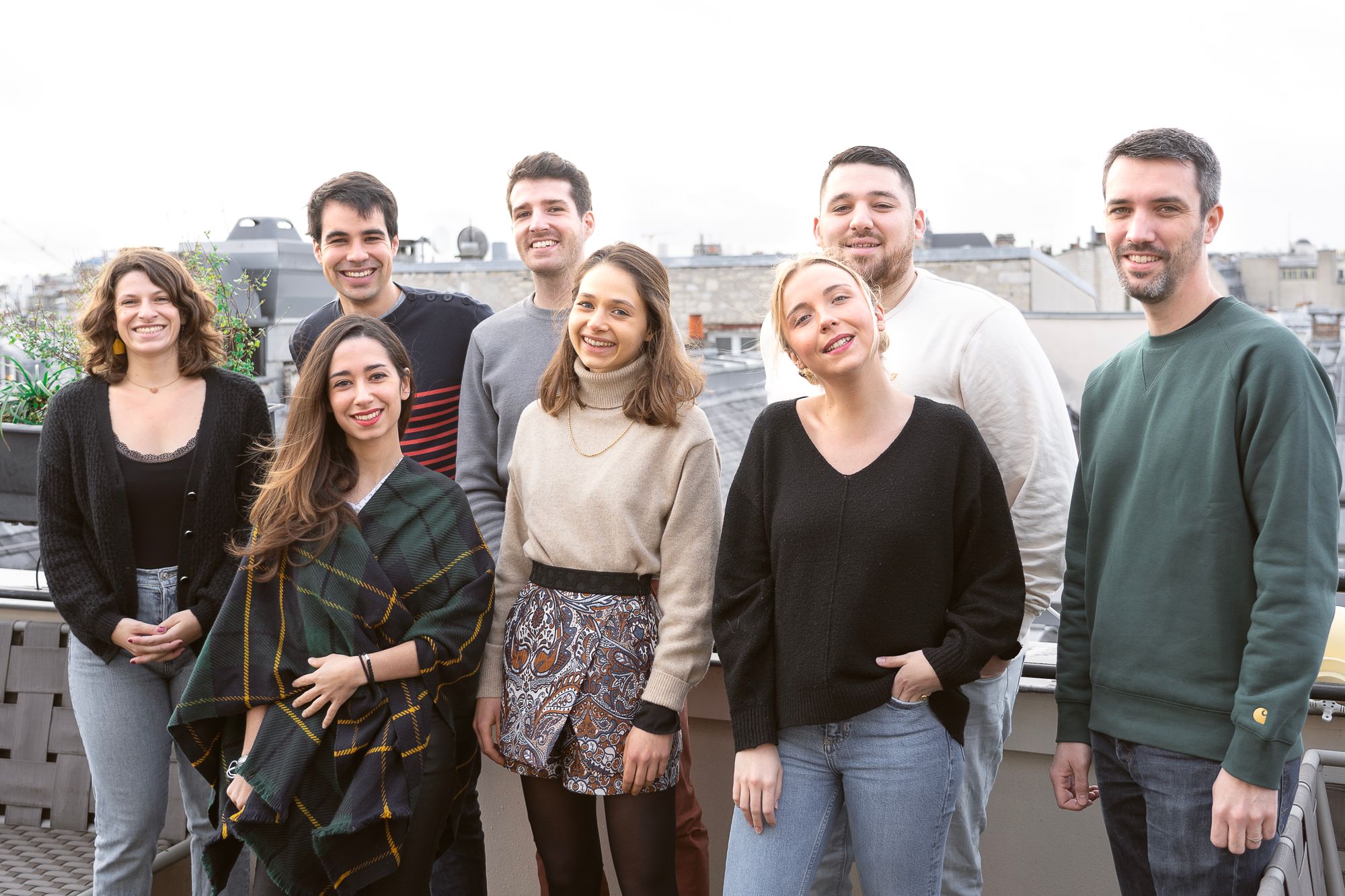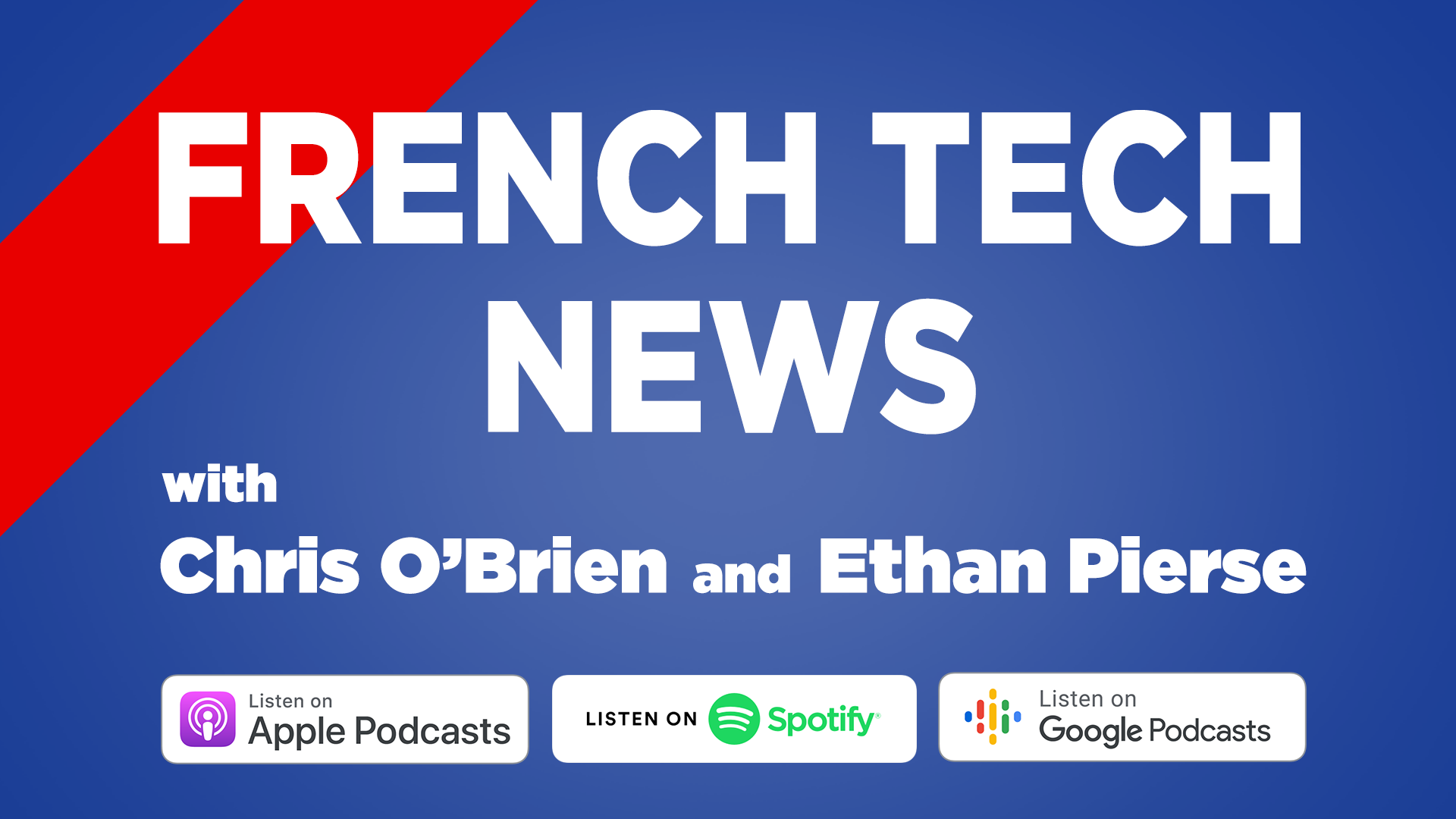The French Tech Journal provides analysis of France’s digital ecosystem as well as in-depth interviews with French entrepreneurs and VCs. If you like what you read, please forward the newsletter to friends or share it with your social networks.
If you want to talk media, journalism, and pitching, you can book an appointment with me at Superpeer. Subscribers to this free email can get a code for a 20% discount. Paid subscribers get a 50% discount.
If you’d like to support independent and original reporting on the French Tech ecosystem, please consider a paid subscription. Send tips, comments, questions, and your ideas to our global headquarters: chris@frenchtechjournal.com.
Launching a startup can be a long, lonely affair, particularly for entrepreneurs who are navigating the myriad challenges for the first time. This is what makes the fast start for Moka.care so surprising.
The mental health platform recently announced that it had raised a €2.5 million Seed round. In an ecosystem that is increasingly obsessed with the size of rounds and valuations, this seems pretty modest.
But look under the hood, and you'll something interesting. Let's start with the list of business angels who joined the round: Nicolas Dessaigne (Algolia), Ning Li (Made.com, Typology), Florian Douetteau (Dataiku), Céline Lazorthes (Leetchi, MangoPay, Resilience), Pierre Dubuc (Open Classrooms), Marc-Antoine de Longevialle (LeCab), Adrien Ledoux (JobTeaser), Roxanne Varza (Station F), Thibault Lamarque (CASTALIE), and Côme Fouques (Indy, ex-Georges.tech).
That's an impressive lineup, emblematic of the growing muscle of French Business Angels. But it also made a strong impression on Jeremy Uzan and Raffi Kamber. The two former senior partners at Alven have started a new European venture firm based in Paris called Singular. Uzan first heard about Moka through the founder of Indy, another early Singular investment.
Uzan was a bit skeptical given the fact that Moka's co-founders, Guillaume d’Ayguesvives and Pierre-Etienne Bidon, were doing their first startup. At the time, the pair were mostly focused on putting together a syndicate of angels, and Singular met them late in the process. But when they saw the list of angels who had already committed, they were impressed.
"It's a good test," Uzan said. "These are young guys discussing with amazing entrepreneurs, repeat entrepreneurs, very successful people. And they managed to convince each and every one to invest. It's a test where you can see that entrepreneurs have the ability to sell. It's also a test for the product itself that you can understand that it's convincing as a project."
Beyond that, the mental health platform was already getting strong traction. Within a couple of weeks of meeting, Singular persuaded the founders to let them invest and lead the Seed round.
"You have an amazing team on a very interesting project with strong product-market fit," Uzan said. "It's already scaling. Something was happening from the very first day."
What is Moka.care?
Moka is a mental health platform based on 3 pillars. The first is one-on-one sessions with therapists and coaches who are vetted to ensure quality. The second pillar is group sessions on mental health topics related to things like parenting or imposter syndrome. The third pillar is self-care through a range of digital content created by Moka's practitioners designed to help take care of their mental health day-to-day.
The concept is something Bidon has been thinking about for years. While he had always felt comfortable talking about mental issues, he knew that most people aren't.
"When I started speaking about mental health, people around me were, were saying, 'Okay, you're seeing a psychologist, but what is your problem? Are you depressed or sick?'" he said. "There was a very stigmatized vision about mental health."
He thought about this issue while working as a business strategist and finally teamed up with d’Ayguesvives, a friend from university days. They created the company in January 2020 and launched the first commercial version in May 2020. The service is delivered as a SaaS platform to companies who want to make it available to employees. Down the road, they want to target insurance companies as well.
"When you have a mental health question, there is nobody you can talk to directly like in your company," Bidon said. "It's not always easy to speak because it could be personal topics, in your friends and family and relatives."
Delivering mental health services via a platform or app is hardly novel. According to a report last year from Octopus Ventures, startups offering some kind of mental health service raised €670 million in 2018, up from €140 million in 2014. But only 14% of that went to European companies, according to Octopus. And many of those tend to be rather specific, either focused on one language or exploring how hallucinogens could treat mental illness.
So Moka seems to have entered a space that is more wide open than it would appear at first glance with a product that companies and users like. For the moment, the team is mostly racing to keep up with demand. In part, they had excellent timing with the pandemic making the mental and emotional well-being of employees a bigger challenge. Among the 30 companies they've signed up are Spendesk and Qonto.
By landing fast-growing French companies that have international footprints, Moka has been able to springboard quickly into several other European countries and even places like Australia. English is the most popular language for users on the platform, and German is third. Having mental health options in local languages is a key part of the strategy, Bidon said.
"For me, it would be very hard to have a session with a therapist in English because I don't have the proper words," Bidon said. "I don't feel the emotion the same way."
Eventually, the company will face big regulatory hurdles as it seeks to expand the range of mental health services. That will require grappling with regulators in each country. But to help get a quick start, Moka is only working with non-medical therapists, including psychologists and coaches, rather than psychiatrists who are medical doctors.
In part, that was designed to attract users beyond those seeking serious treatment as well as those who are not in crisis but have things they want to discuss. In essence, a kind of preventative service. But that approach with practitioners also allowed the company to expand rapidly.
"We wanted to be international very vast," Bidon said. "Because once you manage to create a global network, it's very hard to reproduce."
Racing Ahead

Bidon said the company is trying not to get caught up in chasing metrics or revenues. At the moment, the team is scrambling just to keep up with inbound demand. Moka has about 10 employees and is looking to grow up to 50 by the end of 2021.
More important to Bidon is the impact.
"We are not only focusing on top-line growth because this is already going very fast," he said. "Where we are focusing in 2021 is creating the product that will be the most helpful."
That goes to the motivation for creating the company, but it does also speak to the long-term business goals. Moka is ultimately a B-2-B-2-C company. Bidon believes many Employee Assistance Programs get caught up in targeting just the decision-makers in the HR department. What matters in the end, however, is whether employees use the platform. So far, those metrics are good, with between 15% to 25% of employees using Moka.
"Our focus is to have a really high impact on the user," he said. "And of course, indirectly, if we have an impact on the employee, we will have an impact on the company."
At the same time, Moka's founders now face that first scaling challenge of hiring the right talent and recruiting the core members it needs to become an international force.
"We are able to demonstrate that we are going fast but keeping the same level of belief and keeping the same level of conviction," Bidon said. "Something which is really important for us is our purpose, why we are doing this. It's not to make money or to make a billion. A lot of people in the VC ecosystem tell me that they want to create million-dollar companies, billion-dollar companies, etc, etc. What I want to do is to share my belief and my conviction with the world."
To achieve that, the young team is leaning heavily on those business angels and investors.
"We are first-time entrepreneurs and we have a lot of convictions but we also have a lot to learn," Bidon said. "They are teaching us a lot like on brand strategy and how to make a company grow from 10 people to 200 people. It's nice to have other entrepreneurs by our side."
This combination of passion and strategic thinking goes back to why Singular was so smitten by the co-founders.
"They are executing very well," Uzan said. "They have this kind of urge to create something and they have a strong vision. From the very first day, they created a very beautiful, powerful brand. They really thought that it was the right moment to have that kind of discussion around mental health. It's a Seed stage company. But it's a Seed stage company with very strong traction and already an amazing team."
Audio Goodness!

Join me and co-host Ethan Pierse each Monday and Thursday night at 7 p.m. CET for our French Tech News Clubhouse session.
🎙️ Also: Please subscribe to the French Tech News podcast, a weekly discussion with France's entrepreneurs, innovators, and venture capitalists.
👋🏻 If you’re enjoying The French Tech Journal, support the project by forwarding it to friends and sharing it on your social networks. You can also comment on this post. And if you have ideas for stories, tips, or just want to harass me, send me an email: chris@frenchtechjournal.com. 👋🏻








